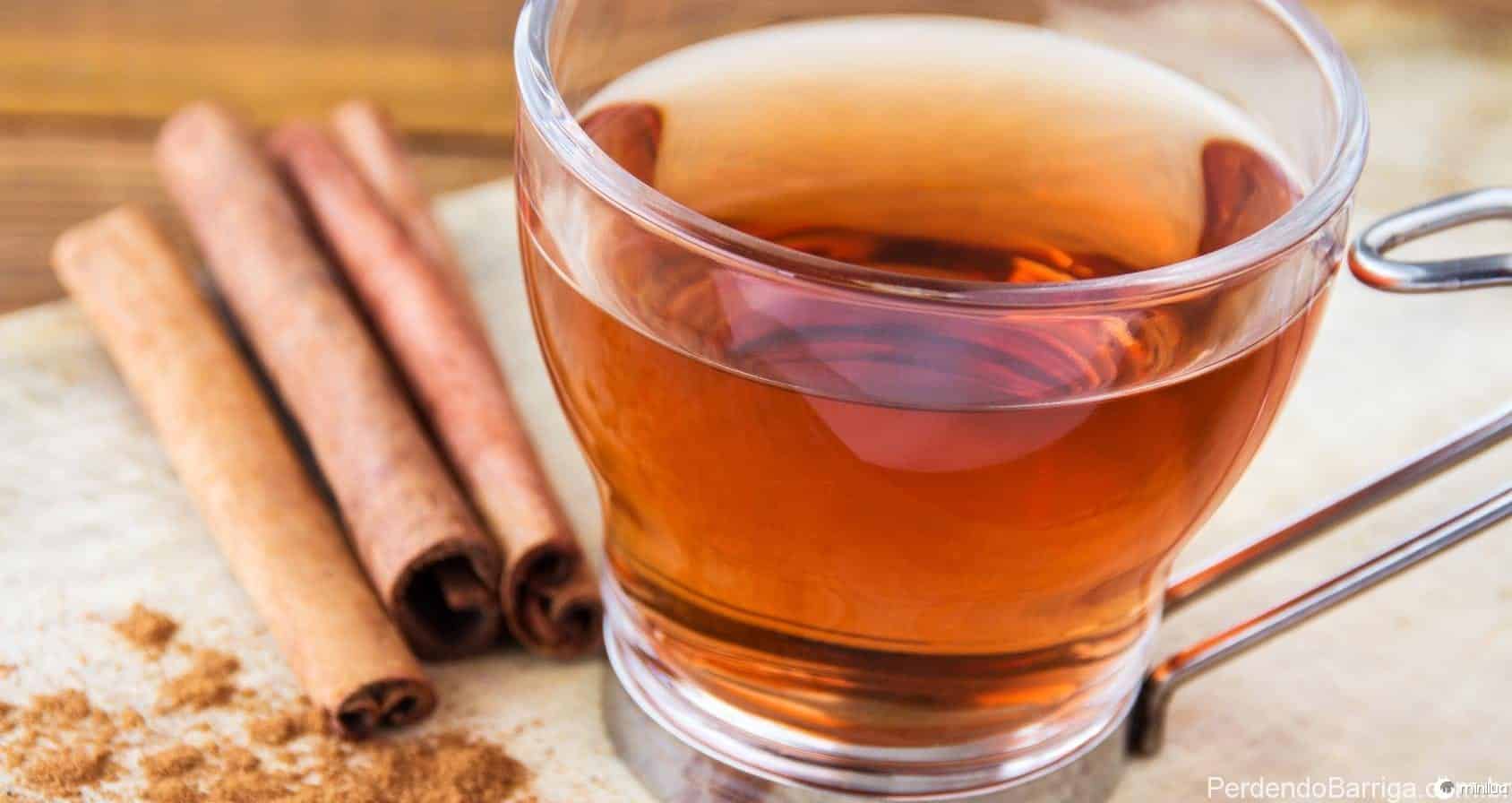Cinnamon stick or powder tea has several properties that are beneficial to health and can influence menstruation. In other words, it has several benefits.
In this article we will teach you how to make cinnamon tea and what its benefits are. Cinnamon is the inner bark of a tree of the species Cinnamomum. It is extracted in chips that dry and form strips, which are rolled up.
Therefore, it has a woody shape and is known as “cinnamon stick”. These chips can be ground, resulting in cinnamon powder, and both can be used to make cinnamon tea.
There is another type of cinnamon known as “Ceylon cinnamon”, which is more difficult to find. Cassia cinnamon is easily found in supermarkets, as well as in central markets because it is cheaper.
Furthermore, the spice is rich in vitamins C and A, and the minerals calcium, iron, magnesium and potassium, which are powerful antioxidants. Furthermore, cinnamon has anti-inflammatory, anti-diabetic, bactericidal, fungicidal properties and there are discussions about cinnamon tea influencing menstruation.
What is Cinnamon Tea good for?
Cinnamon tea is made from cinnamon sticks or powder in hot water. This releases polyphenols, which have antioxidant action. It also has chromium, which helps with insulin sensitivity. In fact, the consumption of cinnamon tea has already been shown to be effective in speeding up metabolism, in addition to preventing diseases.
First of all, are there any side effects?
Firstly, the most common cinnamon to find is cassia, as we already mentioned. It has a substance called “coumarin”, which is harmful to the body if consumed in large doses.
Coumarin is an excellent anticoagulant, but frequent intake can irritate the stomach and worsen ulcers. In addition to increasing the heart rate, causing uterine contractions and diluting the blood to the point of causing bleeding, in the case of those who are already taking anticoagulants.
Can pregnant women drink cinnamon tea?
According to some studies, cinnamon tea helps reduce discomfort caused by menstruation, because it reduces prostaglandin levels, increases endorphin levels and improves blood circulation.
Therefore, it is effective in relieving PMS symptoms, especially menstrual cramps.
On the other hand, there are no studies that prove that cinnamon tea is capable of inducing uterine contractions and, therefore, accelerating menstruation or causing miscarriages in women at the beginning of pregnancy.
However, another study, this time on animals; showed that cinnamon essential oil had an abortifacient effect. Therefore, if you are pregnant, consult your gynecologist so that he can guide you in consuming cinnamon tea.
How to make cinnamon tea
Ingredients
- 1 cinnamon stick (cannot be powdered);
- 1 cup of water.
In short, it is easy to find cinnamon sticks and powder in the markets. However, to prepare the tea, you should not use more than a level teaspoon of powder or a piece of cinnamon stick.
Do not boil water with cinnamon together, as this process causes the loss of much of its health-benefiting properties. Add the main ingredient after the hot water, and no longer with boiling bubbles.
Leave the cinnamon in the water for about 5 minutes, strain and drink the liquid while it is still hot.
Benefits
1- Rich in antioxidants
According to three studies on the PubMed platform, cinnamon is rich in powerful antioxidants, such as polyphenols. They are responsible for protecting the body from oxidative damage caused by free radicals. In other words, they protect the body from infections, diseases and premature aging.
2- Has anti-inflammatory properties
Some studies have shown that the antioxidants present in cinnamon also have anti-inflammatory properties. In other words, they are capable of helping the body recover from major inflammation.
3- Accelerates metabolism
In the oily part of cinnamon, which gives it its characteristic smell and flavor, a compound called cinnamaldehyde is concentrated. It is responsible for accelerating metabolism, due to its thermogenic effect.
4- Fights fungi and bacteria
Cinnamaldehyde also helps with various types of infections. Research has shown that it inhibits the growth of certain bacteria such as Listeria and Salmonella, as well as preventing tooth decay and reducing bad breath.
5- Reduces the risk of heart disease
Cinnamon has been proven to reduce total cholesterol, LDL cholesterol and triglyceride levels, while HDL cholesterol (considered “good cholesterol”) remains stable. Likewise, another study showed that just 120 mg per day already causes these effects and also increases good cholesterol (HDL).
6- Prevents neurodegenerative diseases
Three studies have shown that cinnamon has two compounds capable of inhibiting a protein in the brain whose accumulation is associated with Alzheimer’s disease. As well, in another study with rats with Parkinson’s disease, cinnamon helped protect neurons, normalize neurotransmitter levels and improve motor function.
7- Prevents cancer
Research on mice with colon cancer showed that cinnamon is a potent activator of colon detoxifying enzymes, protecting against cancer growth.
8- Increases insulin sensitivity
Insulin resistance is characteristic of diseases such as metabolic syndrome and type 2 diabetes. However, research has shown that cinnamon can drastically reduce this resistance, and help insulin do its job.
9- Lowers blood sugar
Studies have confirmed that cinnamon interferes with numerous digestive enzymes, slowing the breakdown of carbohydrates in the digestive tract. In other words, reducing the amount of glucose that enters the bloodstream after a meal.
10- Helps in the fight against the HIV virus
Two studies have shown that cinnamon extracted from cassia varieties helps fight HIV-1. However, human trials are still needed to prove its effectiveness.
11- Relieves menstrual discomfort
Finally, research was carried out with teenagers who took 420 mg of cinnamon three times a day and this showed a significant reduction in menstrual cramps, nausea, vomiting and bleeding. This was during the first 72 hours of the cycle compared to the group that took a placebo.
Did you like the article? Then you will also like this: Rosemary tea – Properties, main benefits and contraindications.
Source: Tuasaúde, Ecycle, Arevistadamulher, Lifestyle

Sign up for our newsletter and stay up to date with exclusive news
that can transform your routine!
Warning: Undefined array key "title" in /home/storelat/public_html/wp-content/plugins/link-whisper-premium/templates/frontend/related-posts.php on line 12
Warning: Undefined array key "title_tag" in /home/storelat/public_html/wp-content/plugins/link-whisper-premium/templates/frontend/related-posts.php on line 13




